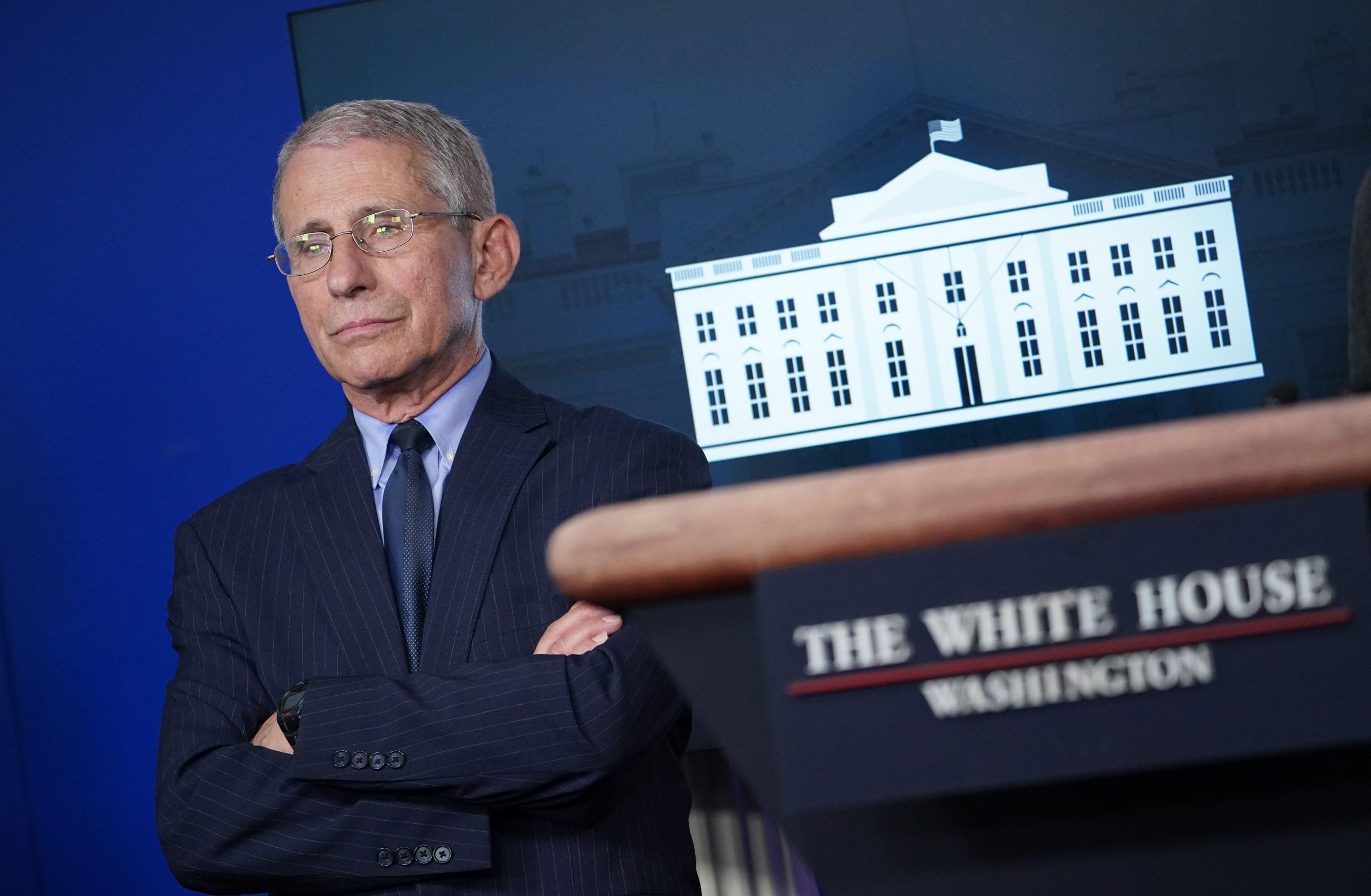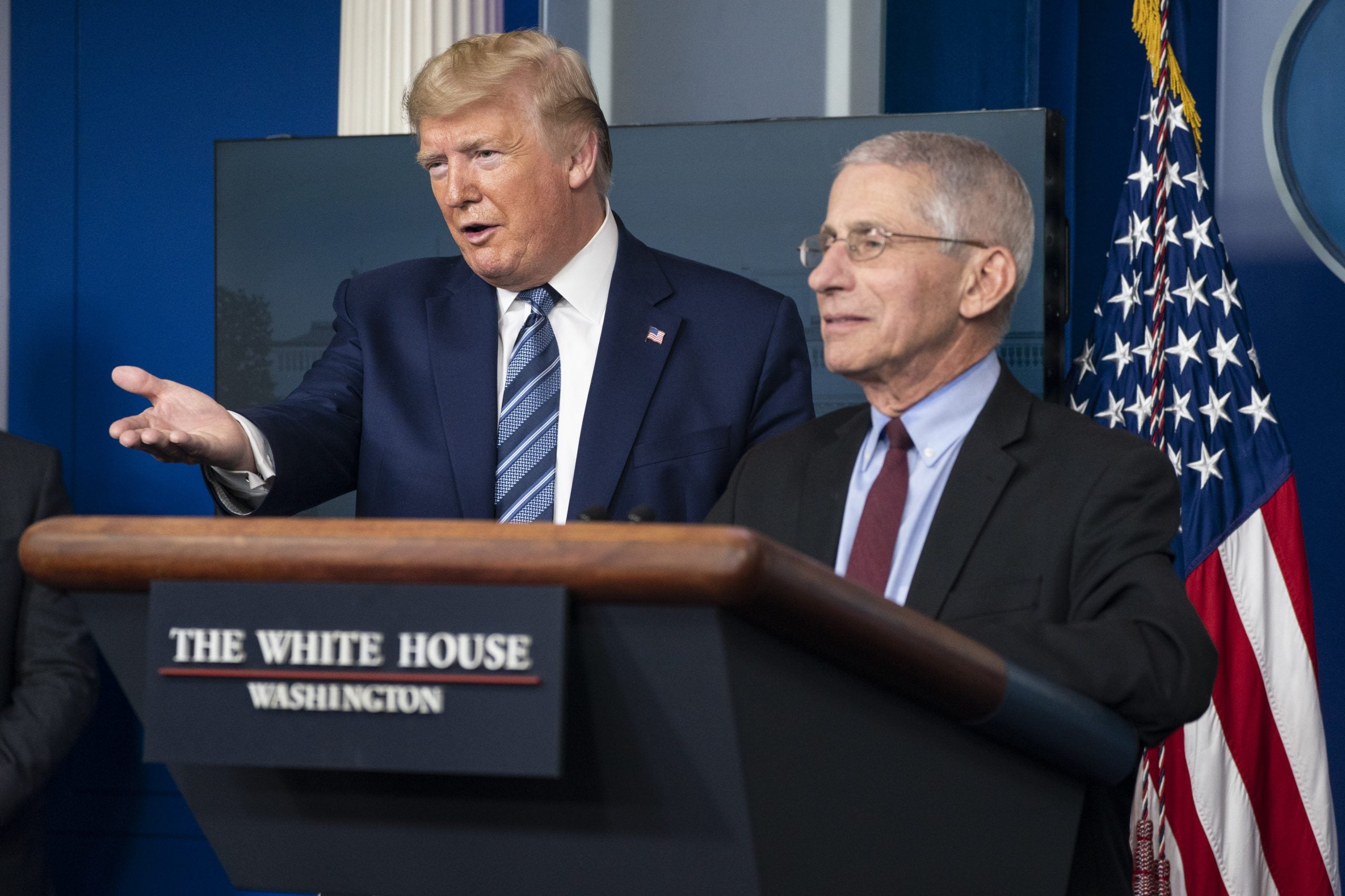
Donald Trump’s close advisers have reportedly undermined Anthony Fauci, M.D., the country’s top infectious disease expert. According to The New York Times, details were provided anonymously to various news outlets about statements Fauci made in regard to the coronavirus pandemic. The information was intended to paint an unflattering picture of the expert and his knowledge of the sometimes fatal illness as the country grapples with a surge in coronavirus cases.
The statement released by a White House official noted that “several White House officials are concerned about the number of times Dr. Fauci has been wrong on things.” The statement, first shared with the Washington Post, also included a lengthy list of remarks Fauci had made about the virus that we now know to be inaccurate. They include his initial take on mask wearing and his reassurances that people should continue to live life as normal prior to the pandemic being labeled a national emergency.
Fauci has always maintained that the information given to the public is formed by what is known, but could change due the novel nature of the virus. Still, advisers attempted to discredit him and blame Fauci’s lack of information on the impeached president’s botched response to the pandemic.

A White House official who spoke to The New York Times on the condition of anonymity insisted that the administration was not looking to discredit Dr. Fauci, but instead remind the public of his record. Some speculate that the decision to do so comes in hopes of bolstering Trump’s flailing re-election campaign.
In the early stages of the pandemic, both Fauci and Trump attempted to downplay any friction or disagreements held between the two men about the handling of the COVID-19 outbreak. But in recent days, the colleagues in the fight to combat the virus have been more outspoken about their opposing views.
Recently Trump sought to discredit Fauci by telling Sean Hannity that the doctor “is a nice man, but he’s made a lot of mistakes.” In the last week, Fauci has also made statements. He ridiculed Trump’s assertion about testing, calling it a “false narrative.” He also came out against the White House’s push to reopen schools. Reports suggest that the men have not spoken to one another since early June, and that the strained relationship has led to more public disagreements.
If it’s a matter of taking sides, Trump’s advisers have clearly sided with him, but a poll conducted for The New York Times by Siena College last month suggests that they are in the minority. When it comes to who the public trusts more, 67 percent of Americans trusted Dr. Fauci as it relates to the virus. Just 26 percent trusted Trump.